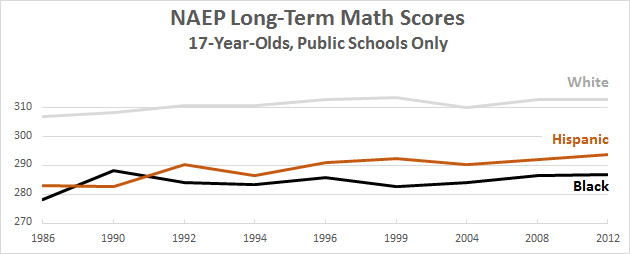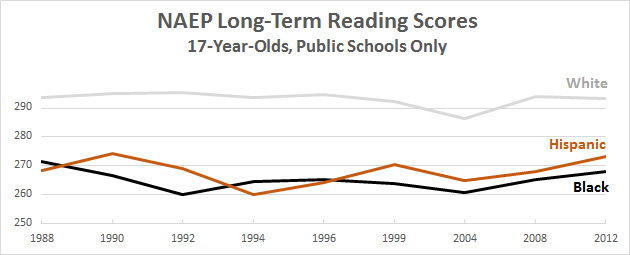Over at Vox, Mark Bauerlein has a complaint about public schools:
Last year at a public school in Southern California, my niece’s 12th-grade teacher led the students to the football field one afternoon for a little exercise in social awareness….It’s called the Privilege Walk, and it’s not an uncommon activity in high schools and college. You can see a version of it here. The purpose is to highlight disadvantages some have in life through no fault of their own. When my niece talked about it, she rolled her eyes, not because she denies inequities in the world but because the whole setup was so stagy and manipulative and solemn.
I had a different reaction: Why spend precious class time on non-academic social consciousness exercises when the academic results of public schooling in America are so poor?
Well, I imagine that most private schools don’t engage in the Privilege Walk, though possibly not for the wholesome reasons that Bauerlein seems to imagine. And I’m certainly not surprised that a smart 17-year-old would roll her eyes about it. I would have done the same at that age.
But then Bauerlein uses that as a lead-in to his real gripe: public schools suck. He provides a few cherry-picked statistics on this score, but that’s all. So for what feels like the millionth time, here’s the best data we have about the quality of public schools in America: the long-term NAEP scores in reading and math.


Over the past three decades, math scores are up across the board and reading scores are flat. Are these “poor” results? I’m not sure why, unless we expect schoolkids to get smarter and smarter forever. Basically the NAEP scores suggest that today’s kids are doing a bit better than their parents, so unless you think America is hopelessly stupid across all generations1 there’s no real evidence that public schools are doing a noticeably bad job. They certainly seem to be doing at least as well as they were 30 years ago, and other evidence suggests they’re also doing at least as well as they were 70 years ago.
Now, what public schools are doing a bad job of is closing the gap between white kids and black/Hispanic kids. Whether private schools are doing better on this score is a subject of intense controversy, but that would certainly be something worth griping about.
POSTSCRIPT: I should note that Bauerlein also complains that we spend a lot more on schools even though results haven’t improved. This is true, largely because teachers are paid a lot more than they were 50 years ago. I assume the reason for this is obvious enough not to require explanation.
1Admittedly, November 8 has changed my priors about this.













